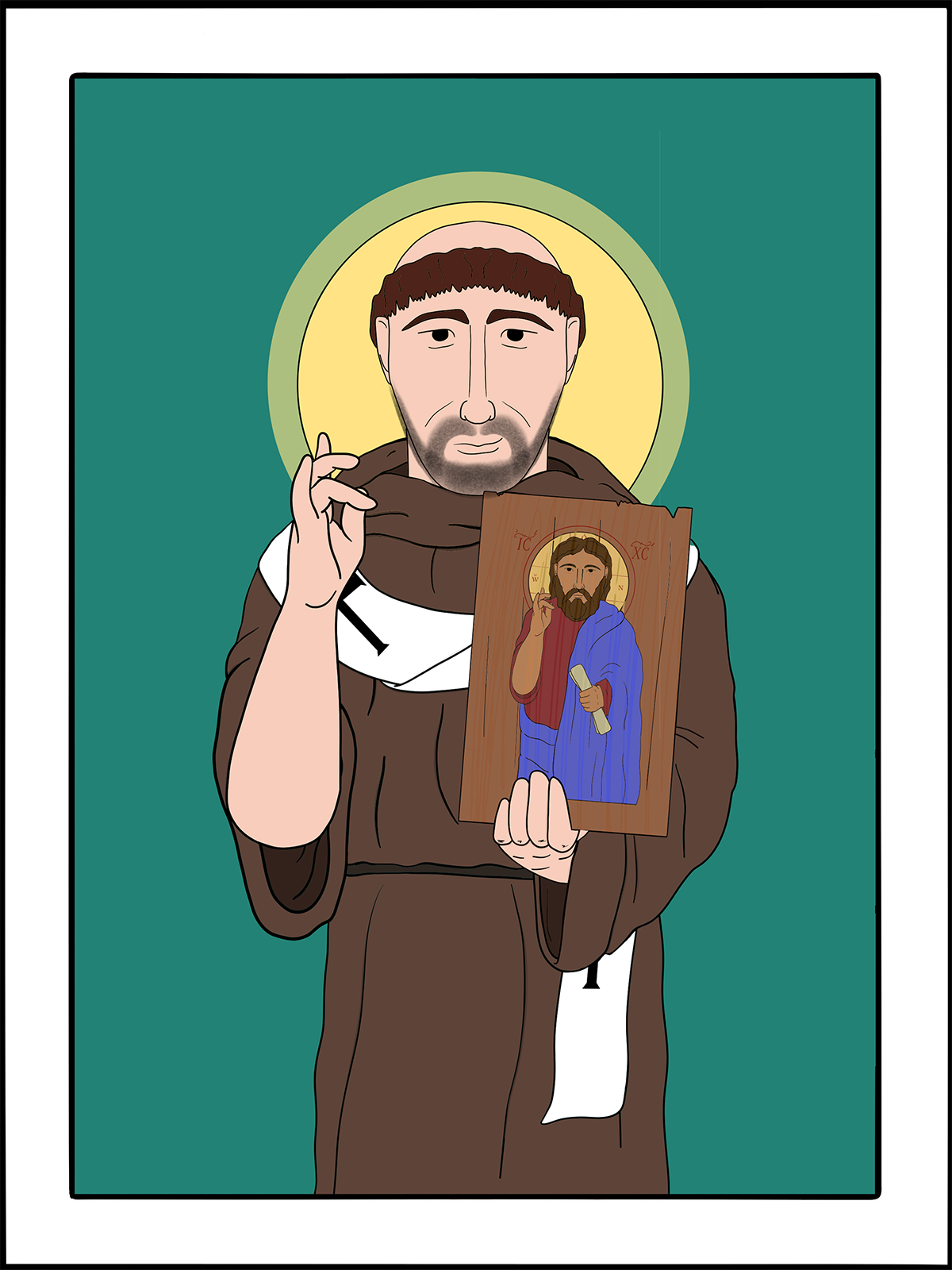
May 26
Augustine
First Archbishop of Canterbury, 605
art by Rev. Kirsten Kohr of Geneva, Ohio O Lord our God, who by your Son Jesus Christ called your servant Augustine to preach the Gospel to the English people: We pray that all whom you call and send may do your will, bide your time, and see your glory; through the same Jesus Christ our Lord, who lives and reigns with you and the Holy Spirit, one God, for ever and ever. Amen.
Although Christianity had existed in Britain before the invasions of Angles and Saxons in the fifth century, Pope Gregory the Great decided in 596 to send a mission to the pagan Anglo-Saxons. He selected, from his own monastery on the Coelian hill in Rome, a group of monks, led by their prior, Augustine. They arrived in Kent in 597, carrying a silver cross and an image of Jesus Christ painted on a board, which thus became, so far as we know, “Canterbury’s first icon.”
King Ethelbert tolerated their presence and allowed them the use of an old church built on the east side of Canterbury, dating from the Roman occupation of Britain. Here, says Bede, they assembled “to sing the psalms, to pray, to say Mass, to preach, and to baptize.” This church of St. Martin is the earliest place of Christian worship in England still in use.
Probably in 601, Ethelbert was converted, thus becoming the first Christian king in England. Around the same time, Augustine was ordained as a bishop somewhere in France and named “Archbishop of the English Nation.” Thus, the see of Canterbury and its Cathedral Church of Christ owe their establishment to Augustine’s mission, as does the nearby Abbey of Saints Peter and Paul, later re-named for Augustine. The “chair of St. Augustine” in Canterbury Cathedral, however, dates from the thirteenth century.
Some correspondence between Augustine and Gregory survives. One of the Pope’s most famous counsels to the first Archbishop of Canterbury has to do with diversity in the young English church. Gregory writes, “If you have found customs, whether in the Roman, Gallican, or any other churches that may be more acceptable to God, I wish you to make a careful selection of them, and teach the church of the English, which is still young in the faith, whatever you can profitably learn from the various churches. For things should not be loved for the sake of places, but places for the sake of good things.” This counsel bears on the search for Christian “unity in diversity” of the ecumenical movement of today.
Augustine died on May 26, probably in 605.
Excerpted directly from “Lesser Feasts and Fasts 2022,” p. 246-247.

